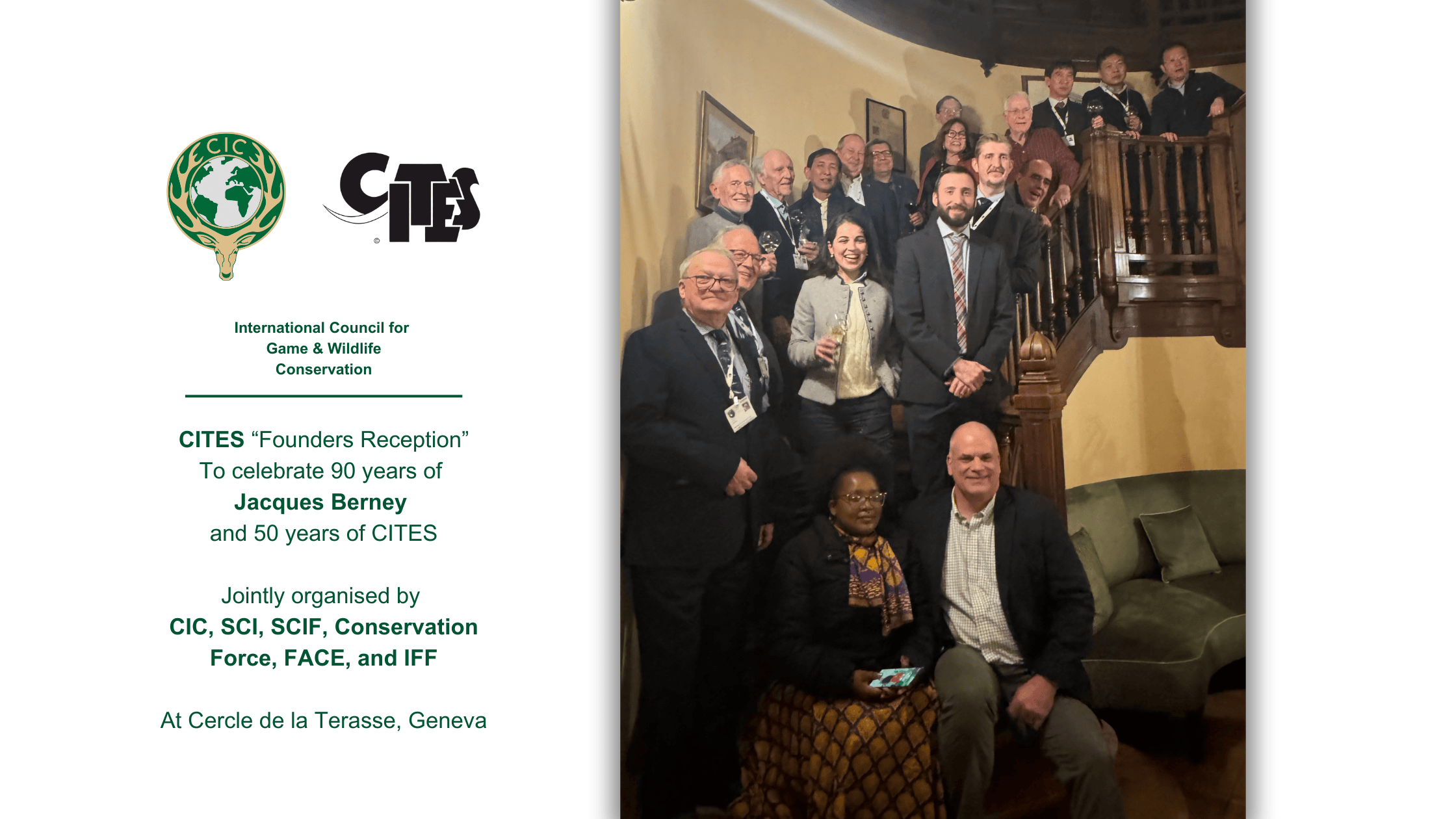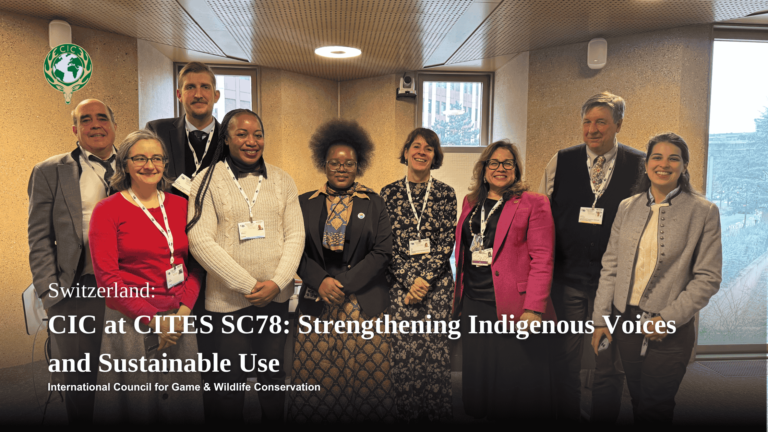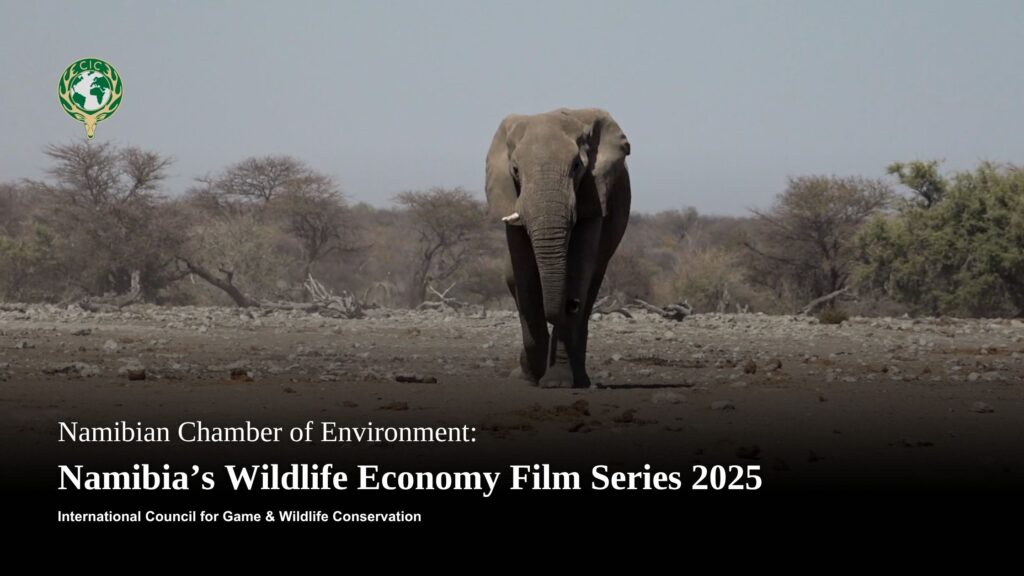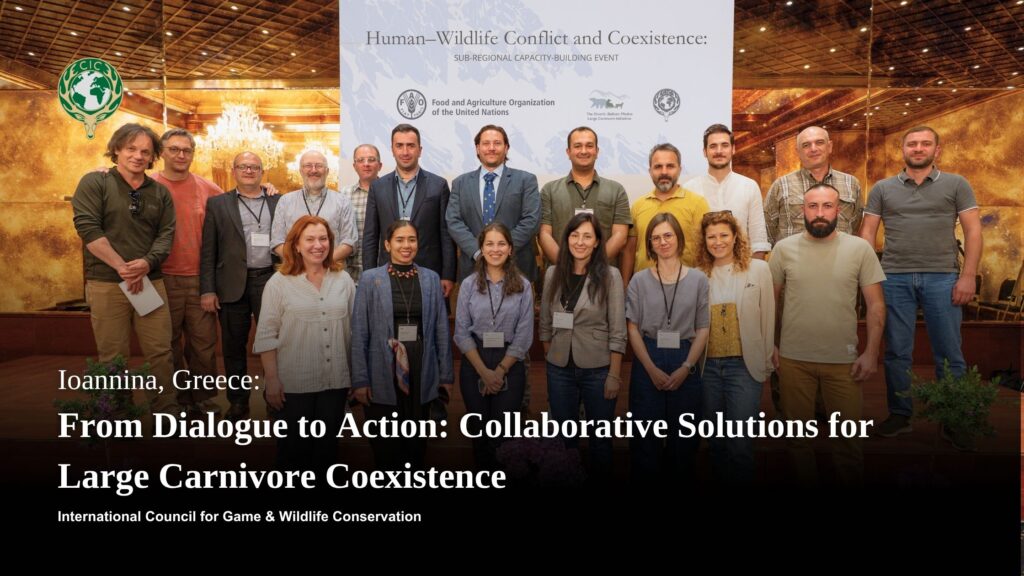Home » News & Press » CIC at CITES SC78: Strengthening Indigenous Voices and Sustainable Use
CITES is the global agreement that regulates wildlife trade to prevent species from becoming endangered or extinct. By setting rules for legal trade and restricting unsustainable practices, it plays a crucial role in balancing conservation and economic livelihoods. However, these regulations must also consider the needs of local communities, hunters, and conservation programs that rely on sustainable use.
At Standing Committee 78 (SC78) in Geneva (February 3–8, 2025), the International Council for Game and Wildlife Conservation (CIC) was represented by Director General Sebastian Winkler, Director of Communications and Public Affairs, Tristan Breijer, and Special Policy Advisor Alexandra Kalandarishvili. This reinforced its commitment to ensuring Indigenous Peoples and Local Communities (IPLCs) have a greater role in global conservation decisions. While CITES plays a crucial role in regulating international wildlife trade, policies must support sustainable use, conservation, and the people who depend on it for their livelihoods.
A key moment in CIC’s engagement at SC78 was our side event co-hosted with Zimbabwean authorities, focusing on the importance of IPLC participation in conservation policies. Speakers included Dr. Patience Gandiwa (ZimParks), Lusizi Mwale (Zambia), Carolina Caceres (Canada, Chair of the IPLC Working Group), and Dr. Dilys Roe (IUCN SULi, CPW Vice-Chair), who discussed how IPLCs are consulted at the national level but remain excluded from global processes, weakening conservation efforts. CIC called for a structured mechanism within CITES to address the social impact of its decisions, ensuring that conservation policies balance biodiversity protection with economic and cultural realities.
Beyond policy discussions, CIC continues to build new collaborations. Ongoing discussions include potential partnerships on saiga antelope conservation with Kazakhstan and the Wild Sheep Foundation (WSF) and engagement with China to promote sustainable hunting practices aligned with conservation goals. CIC is also actively working to ensure proper veterinary checks at national levels through the CITES Working Group on zoonotic diseases, facilitating effective collaboration with the Quadripartite alliance (FAO, WHO, UNEP, and WOAH). However, CIC firmly maintains that CITES itself should not take on a role in zoonotic disease management, but rather focus on its core mandate of trade regulation.
As part of our participation in Geneva, CIC co-hosted a special reception at Cercle de la Terrasse, jointly organised with SCI, SCIF, Conservation Force, FACE, and IFF, to celebrate 90 years of Jacques Berney and 50 years of CITES. The event was attended by CITES Secretary-General Ivonne Higuero and honored the legacy of Jacques Berney, CITES’ first Secretary-General, and Eugène Lapointe (1982–1990), who led CITES’ expansion. Their leadership laid the foundation for sustainable trade regulations and conservation policies that CIC and other organizations continue to defend today.

Looking ahead, the next step in these discussions will take place at the CITES Conference of the Parties (CoP), where CIC will be actively engaged in follow-up actions, species listing proposals, and further advancing IPLC participation in decision-making.
CIC remains committed to ensuring that CITES protects not only species but also people. At SC78, we continue working alongside our partners and international organizations to promote sustainable use, community-led conservation, and science-based decision-making—because conservation only works when people are part of the solution.
Media Contact:
Tristan Breijer MBA FRGS FRSA MCIJ
Senior Communications and Public Affairs Advisor
CIC – International Council for Game and Wildlife Conservation
Email: tristan.breijer@cic-wildlife.org
Mobile: +44 781 408 7423
Website: www.cic-wildlife.org




